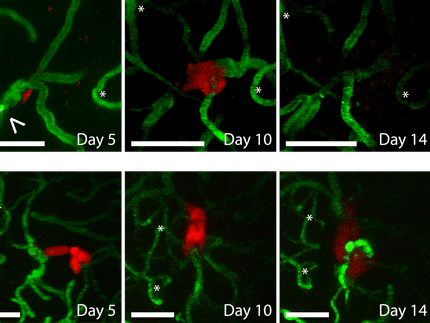FDA Grants Fast Track Designation to Bayer’s Investigational Compound Alpharadin for the Treatment of Castration Resistant Prostate Cancer in Patients with Bone Metastases
Bayer HealthCare announced that its investigational compound AlpharadinTM (radium-223 chloride), which is exclusively licensed from Algeta ASA, has been granted Fast Track designation by the U.S. Food and Drug Administration (FDA) for the treatment of castration-resistant (hormone refractory) prostate cancer in patients with bone metastases.
“Prostate cancer is a leading cause of death among men all over the world. There is a significant unmet need for patients suffering from the advanced stages of the disease, especially in patients whose cancer has spread to the bone,” said Kemal Malik, MD, Head of Global Development and member of the Bayer HealthCare Executive Committee. “We are excited that Alpharadin has achieved this important milestone and recognize this fast track designation as an important step in the overall development of Alpharadin, particularly for those patients in need of treatment.”
In June, Bayer announced that the Phase III ALSYMPCA (ALpharadin in SYMptomatic Prostate CAncer) trial evaluating Alpharadin in patients with CRPC and symptomatic bone metastases met its primary endpoint by significantly improving overall survival. Based on a recommendation from the Independent Data Monitoring Committee (IDMC), following a pre-planned interim analysis, the study was stopped and patients on the placebo arm have been offered treatment with Alpharadin. The overall survival result was statistically significant (two-sided p-value = 0.0022, HR = 0.699, the median overall survival was 14.0 months for Alpharadin and 11.2 months for placebo).
The safety and tolerability of Alpharadin were consistent with previous Phase I and Phase II trial outcomes and did not show any new or unexpected changes in the safety profile of Alpharadin. The complete results from the study will be presented at an upcoming scientific meeting.
Most read news
Organizations
Other news from the department research and development

Get the life science industry in your inbox
By submitting this form you agree that LUMITOS AG will send you the newsletter(s) selected above by email. Your data will not be passed on to third parties. Your data will be stored and processed in accordance with our data protection regulations. LUMITOS may contact you by email for the purpose of advertising or market and opinion surveys. You can revoke your consent at any time without giving reasons to LUMITOS AG, Ernst-Augustin-Str. 2, 12489 Berlin, Germany or by e-mail at revoke@lumitos.com with effect for the future. In addition, each email contains a link to unsubscribe from the corresponding newsletter.





















































